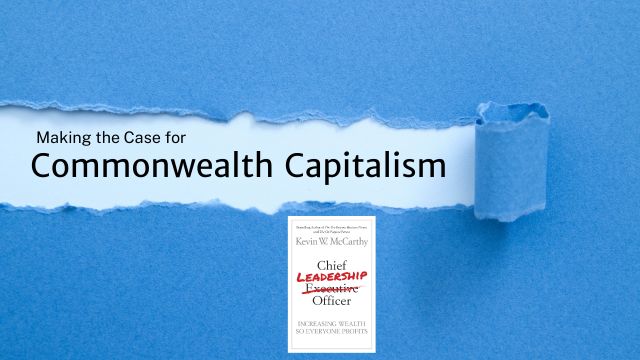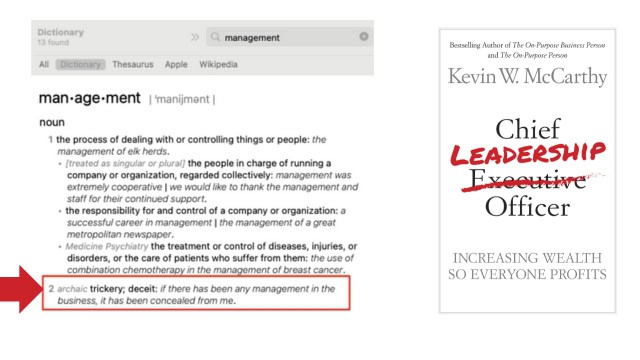
In the bustling offices of today’s corporate giants, a dangerous void often lurks beneath the surface. Amid high-stakes meetings, quarterly earnings calls, and strategic pivots, a question simmers in the hearts of many: What’s the point of all this?
For too many CEOs and business leaders, the relentless pursuit of profits and shareholder value has blinded them to the broader role their enterprises are meant to play in society. The symptoms are clear: fractured workplace cultures, disillusioned employees, and a growing skepticism among the public — especially young people — about capitalism itself.
The Root of the Crisis
Modern capitalism, with its laser focus on maximizing shareholder value, has lost its way. What began as a system designed to harness human ingenuity and create widespread prosperity has become a source of toxicity to wellness. Businesses, once integral to the fabric of thriving communities, are increasingly seen as faceless, profiteering entities.
This corrosion of capitalism’s moral core has profound implications. A generation disillusioned by corporate greed and systemic failures is gravitating toward socialism, lured by false promises of security and fairness. Meanwhile, the American Experiment — the idea that free enterprise, hard work, and individual liberty can lift societies to unprecedented heights — hangs in the balance.
The Call for a Commonwealth Capitalism
A fundamental shift in the way we do business is needed. We must reclaim capitalism’s original intent: to elevate the common good and contribute to the commonwealth of all people. This vision transcends popular buzzwords of “stakeholder capitalism” and “ESG goals.” It roots itself deeply in a tradition of stewardship, service, and purpose — values often found in Christian principles prioritize love, law, and responsibility.
Commonwealth capitalism recognizes that corporations are not merely economic entities but social institutions with a responsibility to align personal and organizational purpose. This alignment fosters an esprit de corps among team members, shareholders, and stakeholders alike, creating cultures where work becomes an act of service rather than a soulless chore. It restores the dignity of labor and renews the social contract between business and society.
Toward a Better Capitalism
Business leaders bewail the shallow talent pool and resulting turnover. They would be wise to look into that pool to see their reflection as complicit to the problem rather than victims of it. The answer to capitalism’s many crises lies not in abandoning it for socialism but in restoring its moral foundation. By embracing a model of commonwealth capitalism, businesses can:
- Engage Purpose: Align their purpose with the common good, ensuring team members’ work makes a meaningful contribution to the whole.
- Cultivate Community: Foster a workplace culture where collaboration, service, and shared values thrive.
- Redefine Success: Measure achievements not only by profits but also by the positive impact on employees, customers, and communities.
- Set Standards: Have a societal role as an efficient and effective means to produce goods and services to higher standards.
It is because of, not in spite of, competition that capitalism remains the most viable economic system for raising a society’s standard of living. At best, socialism spawns mediocrity because it goes against people’s innate desire for freedom and improvement, whereas this is the strength of capitalism. The positive results are lower costs, improved quality, faster speed, abounding innovation, and variety.
This approach requires humility, boldness, and a willingness to reimagine what business can be while avoiding falling into the temptations of greed at the cost of people and the planet. It challenges leaders to move beyond pure capitalism to embrace a modified version rooted in a common good responsibility.
The Precipice and the Promise
We stand at a pivotal moment. The allure of socialism grows as the failures of unbridled capitalism outweigh its advantages. Yet the answer lies not in government control but in a return to the principles that made free enterprise a force for good: stewardship-leadership and the pursuit of the common good — all rooted in purpose.
By embracing commonwealth capitalism, let’s renew the promise of the American Dream 3.0 and inspire a new generation of leaders to see business not as an end in itself but as a means to a higher and nobler calling. The first step forward begins with purpose, guided by principles that elevate the human spirit to build a better world so we’re all on-purpose persons in creation.
Be On-Purpose!
Kevin


